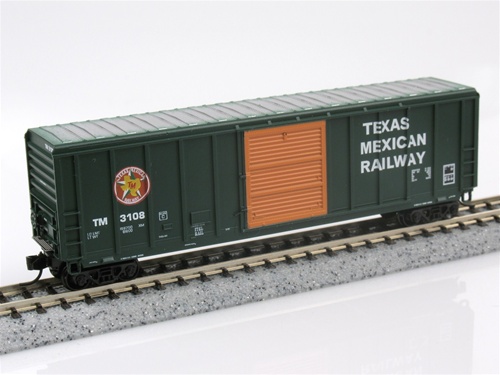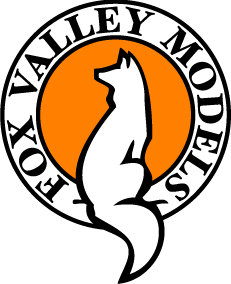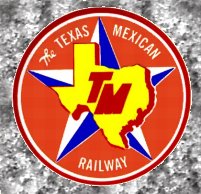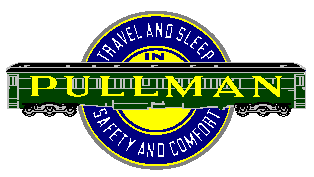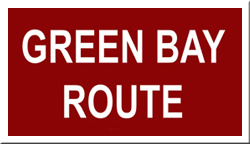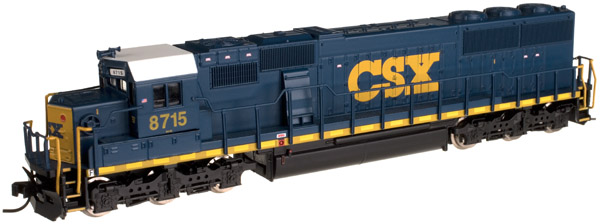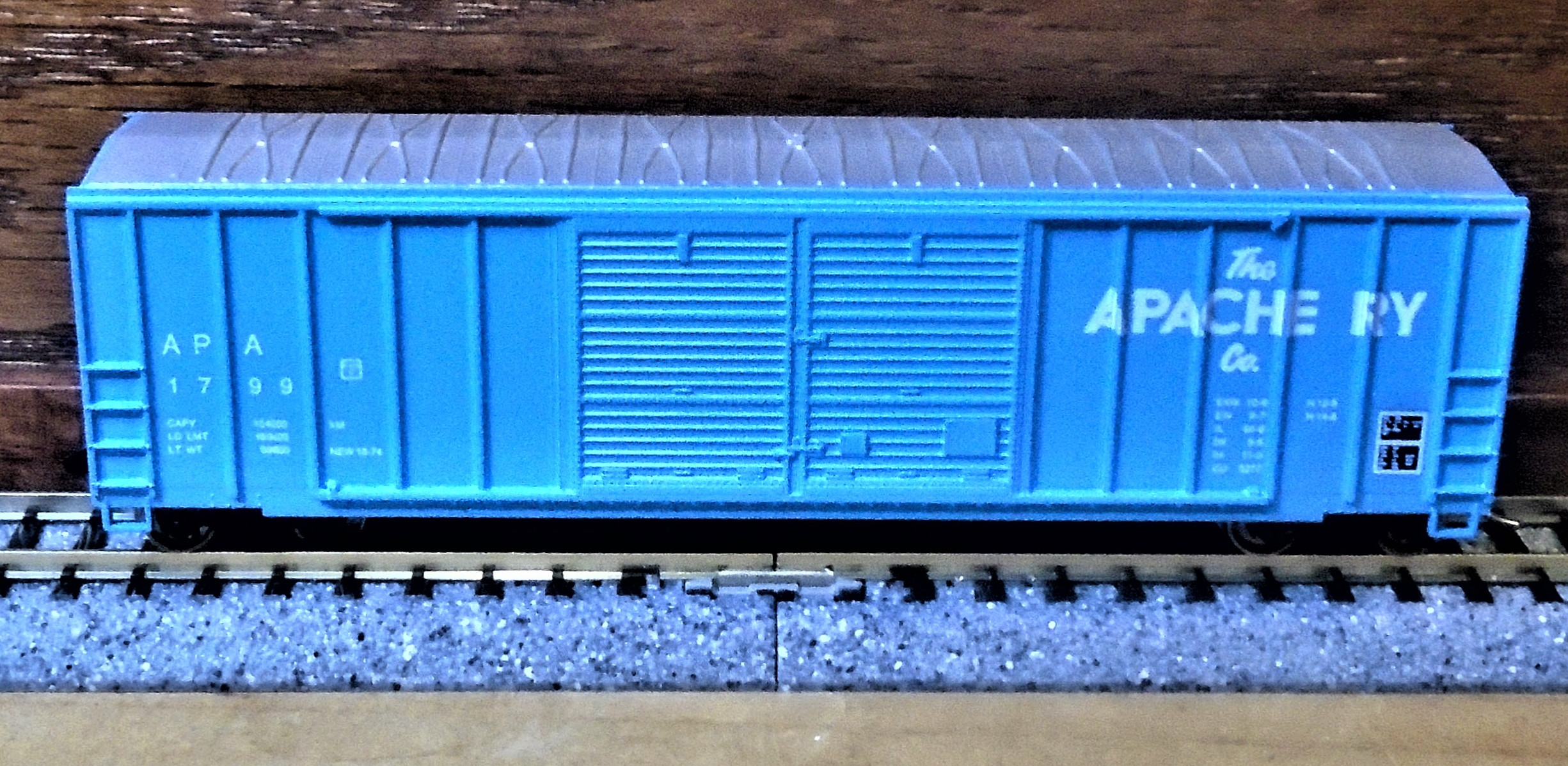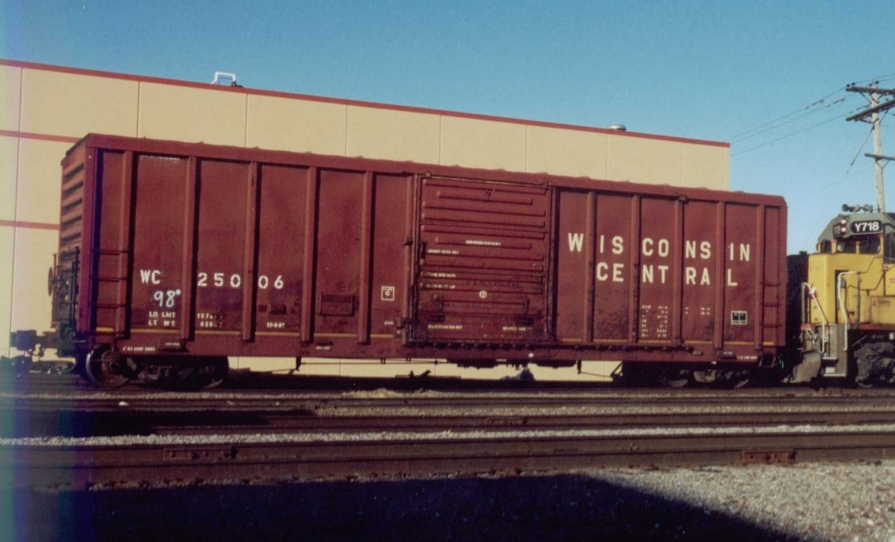Prototype History: The P-S 5344 Boxcar is last of the successful boxcar projects of the Pullman-Standard company. With production beginning in 1977, Pullman-Standard produced nearly 7,000 P-S 5344 Boxcars. In 1981, Pullman moved to sell all railroad assets in an economy of declining freight car sales. However, these cars ply the rails in legacy of America's great car builder. The last of a breed.
Road Name History: The Texas Mexican name first appeared in 1881 during a reorganization of a previous three foot gauge line linking the Gulf port of Corpus Christi, Texas and the city of Loredo on the Mexican border. The line was 157 miles long putting it between Spokane International and Duluth Winnipeg & Pacific in relative size. The TM was standard-gauged in 1902.
Since 1900, TM was owned by the Mexican government through a trust administered in New York. The TM acted as a funnel for traffic to and from Mexico, in fact the end of the line was half way across a bridge over the Rio Grande west of Loredo. The bridge, which was completed in 1883 was the first direct railroad connection between the U.S.A. and another country (the first connection to Canada that didn’t involve a ferry followed six years later!)
TM completely dieselized in 1939 with a fleet of 7 Whitcomb boxcabs. These strange little diesels had four axels set in a rigid frame. That sounds a little, well rigid, by diesel standards but think of it as a diesel powered 0-8-0. A few years later, TM built a few diesels themselves with 4 powered axels in a rigid frame plus a pair of un-powered leading wheels – essentially a diesel 2-8-0. They even built another diesel from an old baggage car.
TM did go on to buy more sensible locomotives including Baldwin switchers, EMD F7’s, and 7, 9, 18, 28, and 38 series geeps. By the 1980’s, there were 16 various geeps on the roster. For a while in the 1980s, TM provided passenger service under the name TexMex Express between Corpus Christi and Loredo with some success.
In 1982, the Mexican government sold their stake in TM to a Mexican company. As the privatization of the Mexican National Railways (FNM) loomed, Kansas City Southern was assembling a system to take advantage of new traffic moving north and south due to the passage of the NAFTA treaty. KCS was positioning itself to acquire a large stake in the “Northeast Concession” (that would become TFM) in the privatization of FNM. Over a period of several years, shares in Texas Mexican were traded back and forth between KCS and companies in Mexico. KCS officially took control of TM in 2005 when they also purchased all remaining shares of TFM. That left a gap between Corpus Christi and the end of the KCS at Beaumont, Texas. KCS had already leveraged trackage rights over Union Pacific to bridge that gap in exchange for not fighting UP’s acquisition of Southern Pacific. Today, TM is a wholly owned subsidiary of KCS and operations are largely integrated into those of KCS.
Since 1900, TM was owned by the Mexican government through a trust administered in New York. The TM acted as a funnel for traffic to and from Mexico, in fact the end of the line was half way across a bridge over the Rio Grande west of Loredo. The bridge, which was completed in 1883 was the first direct railroad connection between the U.S.A. and another country (the first connection to Canada that didn’t involve a ferry followed six years later!)
TM completely dieselized in 1939 with a fleet of 7 Whitcomb boxcabs. These strange little diesels had four axels set in a rigid frame. That sounds a little, well rigid, by diesel standards but think of it as a diesel powered 0-8-0. A few years later, TM built a few diesels themselves with 4 powered axels in a rigid frame plus a pair of un-powered leading wheels – essentially a diesel 2-8-0. They even built another diesel from an old baggage car.
TM did go on to buy more sensible locomotives including Baldwin switchers, EMD F7’s, and 7, 9, 18, 28, and 38 series geeps. By the 1980’s, there were 16 various geeps on the roster. For a while in the 1980s, TM provided passenger service under the name TexMex Express between Corpus Christi and Loredo with some success.
In 1982, the Mexican government sold their stake in TM to a Mexican company. As the privatization of the Mexican National Railways (FNM) loomed, Kansas City Southern was assembling a system to take advantage of new traffic moving north and south due to the passage of the NAFTA treaty. KCS was positioning itself to acquire a large stake in the “Northeast Concession” (that would become TFM) in the privatization of FNM. Over a period of several years, shares in Texas Mexican were traded back and forth between KCS and companies in Mexico. KCS officially took control of TM in 2005 when they also purchased all remaining shares of TFM. That left a gap between Corpus Christi and the end of the KCS at Beaumont, Texas. KCS had already leveraged trackage rights over Union Pacific to bridge that gap in exchange for not fighting UP’s acquisition of Southern Pacific. Today, TM is a wholly owned subsidiary of KCS and operations are largely integrated into those of KCS.
Brand/Importer Information: Fox Valley Models is a small supplier of
model railroad and related products. FVM
started by finding solutions to different
challenges that model railroaders were
faced with. Our first products resulted
from a need to equip custom built
passenger cars with tinted windows made
of an ideal material; thin, flexible, easy to
cut, simple to install, available in multiple
colors and be affordable. We met those
needs and even included a frosted
version for the car's lavatory windows.
Other challenges inspired additional products including wooden grade crossings, trestles and different lineside structures. As our product line expands, input and requests from friends and customers help shape the product selection further.
Future products, under development, include more parts, structures, details and rolling stock. We strive to offer a good quality product at an affordable price.
Other challenges inspired additional products including wooden grade crossings, trestles and different lineside structures. As our product line expands, input and requests from friends and customers help shape the product selection further.
Future products, under development, include more parts, structures, details and rolling stock. We strive to offer a good quality product at an affordable price.
Item created by: gdm on 2017-05-06 18:05:46. Last edited by gdm on 2021-09-27 12:33:00
If you see errors or missing data in this entry, please feel free to log in and edit it. Anyone with a Gmail account can log in instantly.
If you see errors or missing data in this entry, please feel free to log in and edit it. Anyone with a Gmail account can log in instantly.


